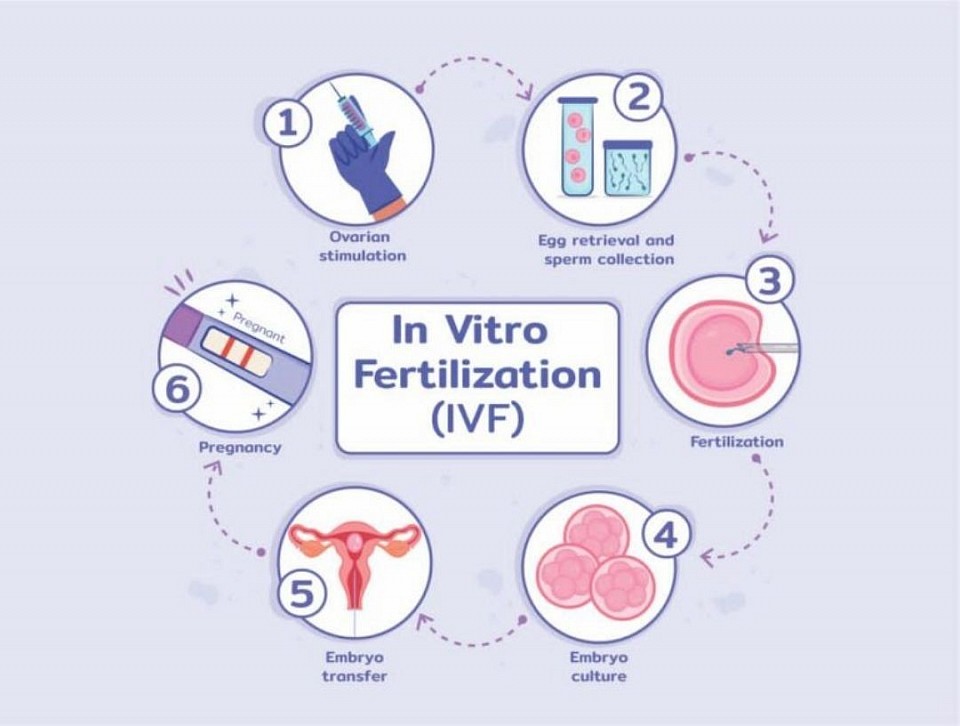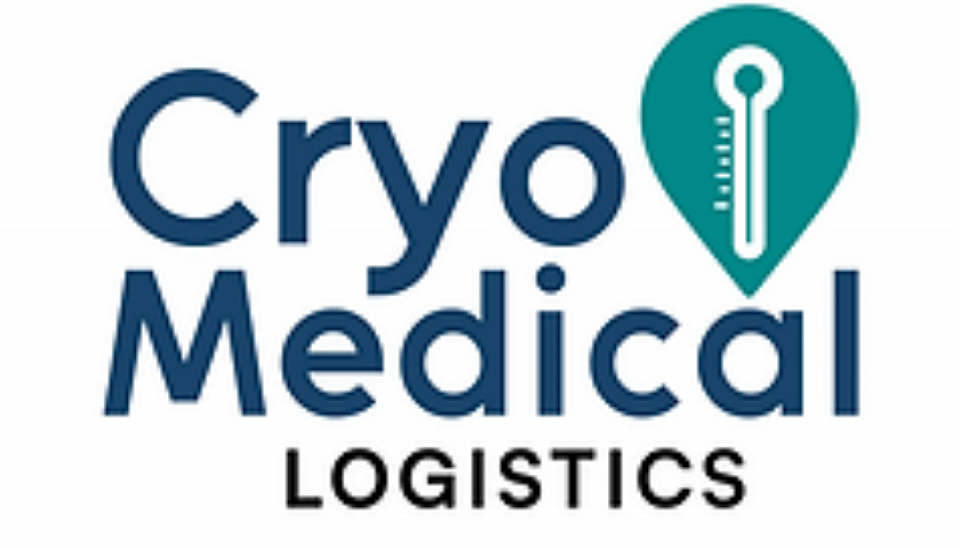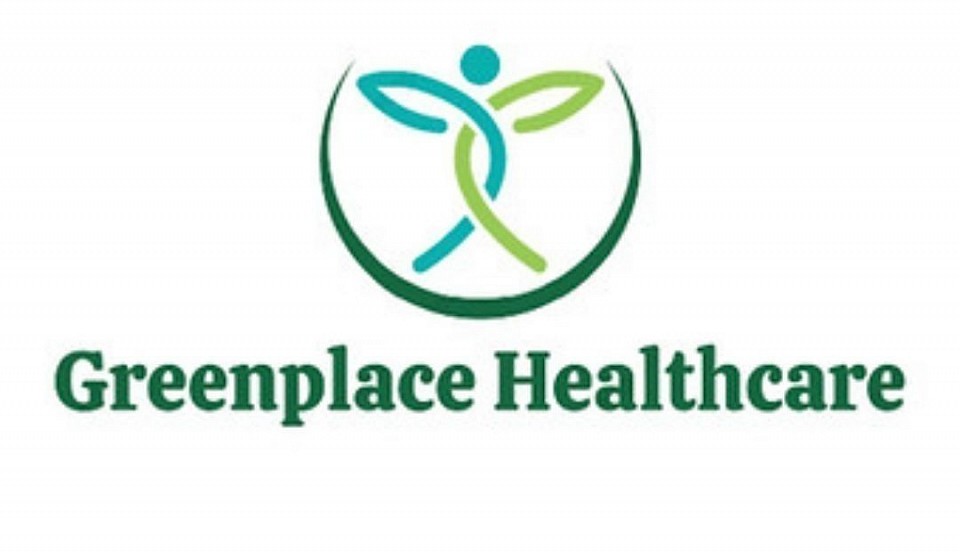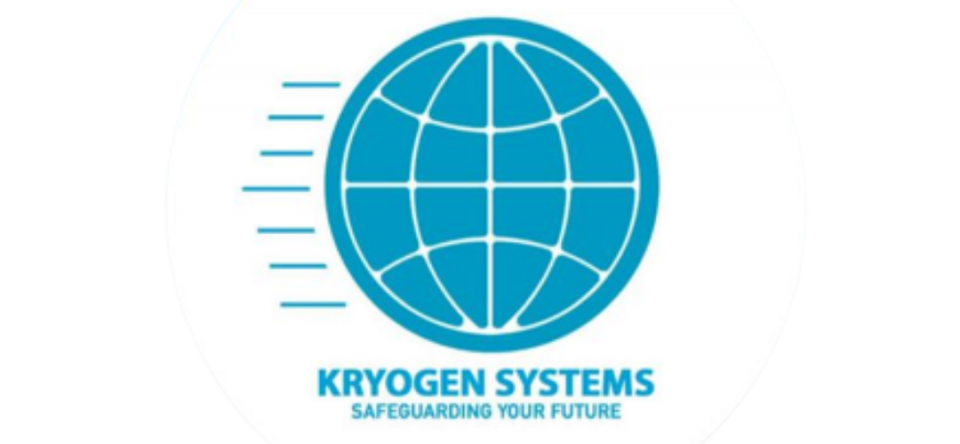BLESSED WORLD SURROGACY ENTERPRISE (C.A.C REG No: BN-3612143)
CHOOSE IVF TODAY BLESSED WORLD SURROGACY ENTERPRISE
• WHO WE ARE
We are a consulting firm that helps infertile couples have their own babies through IVF and Surrogacy. We are helping lives through artificial reproductive technology.
"SERVICES WE OFFER @ BLESSED WORLD SURROGACY ENTERPRISE"
We provide you a good ferility clinic to help you conceive through IVF, IUI, ICSI, IVF & SURROGACY MANAGEMENT, FERTILITY CONSUTATION/ PLANNING, EGG DONOR & SURROGATE RECRUITMENT, e.t.c.
ABOUT BLESSED WORLD 🌎 SURROGACY ENTERPRISE
- Blessed World Surrogacy Enterprise as a reliable surrogacy consultancy AGENCY in Africa, committed to providing the best services with a good success rate. We emphasize on a patient-focused approach and high standards in their services.
- BLESSED WORLD SURROGACY ENTERPRISE Is the fore most reliable surrogacy consultancy FERTILITY / SURROGACY ESTABLISHMENT in Africa committed to providing high-quality services with a good success rate. Emphasizes a patient-focused approach and high standards in services.
SERVICES OFFERED
- Blessed World Surrogacy Enterprise is a consulting firm that assists infertile couples in having their own babies through IVF and Surrogacy. They manage surrogacy programs with legal documentation and provide services such as fertility clinic assistance for conception through IVF, IUI, and ICSI
- Provides assistance to infertile couples in having their own babies through IVF and Surrogacy. Manages surrogacy programs with legal documentation
IN VITRO FERTILIZATION (IVF)
- OUR websites explains IVF Better as a process of fertilizing an egg with sperm outside the human body. It details when IVF is recommended, the IVF process, and the steps involved in an IVF cycle so You Understands What the Process involves and It's PROCESSES.
FACTS AND EXPLANATION ABOUT IN VITRO FERTILIZATION (IVF)
- Details of the process of IVF, when it is recommended, and the steps involved in an IVF cycle. Explains the procedures, including medication, egg retrieval, insemination, embryo culture, and embryo transfer.
PRE IMPLANTATION GENETIC TESTING (PGD/PGS)
- Information is provided on Preimplantation Genetic Testing, including PGD for genetic abnormalities and PGS for chromosomal abnormalities. The process, benefits, and conditions suitable for PGD/PGS are explained in detail.
PRE IMPLANTATION GENETIC DIAGNOSIS – PGD/PGS
- Discusses Preimplantation Genetic Testing, including PGD for genetic abnormalities and PGS for chromosomal abnormalities. Explains the testing process, benefits, and conditions suitable for PGD/PGS. Describes the PGD and PGS processes in detail.
PGT TREATMENT
The decision to start a family is deeply personal, and for some, it comes with the concern of passing on a known genetic condition. We understand that this can be overwhelming, but modern reproductive technology offers hope. Preimplantation Genetic Testing (PGT) empowers individuals and couples to make informed decisions about their future children’s health, giving them peace of mind on their journey to parenthood.
At BLESSED WORLD 🌍 SURROGACY ENTERPRISE, we provide expert PGT services using cutting-edge technology and experienced specialists to help you conceive with confidence. Whether you have a family history of genetic conditions, have experienced multiple miscarriages, or want to improve your IVF success rates, our tailored approach ensures you receive the best possible care.
What is PGT?
PGT is an advanced laboratory procedure performed during an IVF cycle. It involves testing embryos for genetic conditions before implantation, allowing fertility specialists to select the healthiest embryos for transfer. By identifying chromosomal abnormalities or inherited disorders early, PGT increases the chances of a successful pregnancy while reducing the risk of passing on genetic diseases.
PGT can be beneficial for individuals and couples who:
✓ Have a family history of genetic diseases
✓ Have experienced multiple miscarriages
✓ Have previously had failed IVF cycles
✓ Are at risk of passing on chromosomal abnormalities
✓ Want to prevent sex-linked genetic disorders
Types of PGT
PGT includes three main types of testing, each serving a specific purpose in identifying genetic risks:
PGT-M
PGT-M (monogenic/single gene disorders)
This test screens embryos for specific inherited genetic disorders, such as sickle cell anaemia, cystic fibrosis, and Huntington’s disease. It is particularly beneficial for individuals or families with a known history of genetic conditions to prevent passing them on to future generations.
PGT-A (aneuploidy screening)
(Aneuploidy)
PGT-A helps detect embryos with missing or extra chromosomes, a condition known as aneuploidy. This testing reduces the chances of chromosomal abnormalities such as Down syndrome or Turner syndrome, increasing the likelihood of a successful pregnancy.
PGT-SR (structural rearrangements)
(Structural Rearrangements)
This test identifies issues with chromosome structure, which can lead to recurrent miscarriages or implantation failure during fertility treatments. PGT-SR is recommended for individuals with balanced translocations or other chromosomal rearrangements that may affect embryo viability.
Sex Selection:
Understanding Your Options for Family Planning
Category:
Fertility Clinics, Infertility Treatment
SUCCESS RATE: 89%
Sex Selection:
Understanding Your Options for Family Planning
Every parent wants the best for their child, and for some families, that means ensuring their little one is born healthy and free from inherited conditions. Certain genetic disorders, such as haemophilia and Duchenne muscular dystrophy, are passed down through generations and can impact a child’s quality of life. Thanks to medical advancements like Preimplantation Genetic Testing (PGT), families now have the opportunity to reduce the risk of passing on these conditions. PGT allows doctors to screen embryos during fertility treatment, helping parents choose the healthiest embryo for implantation. This not only gives children a better chance at a healthy life but also offers hope for future generations.
What is Sex Selection?
Sex selection is the process of determining the biological sex of an embryo before implantation during in vitro fertilisation (IVF). This is typically done through preimplantation genetic testing for aneuploidy (PGT-A), which screens embryos for chromosomal abnormalities and allows for the selection of a preferred gender in medically necessary cases.
While some families pursue sex selection for medical reasons, such as preventing genetic disorders linked to a specific gender, others explore it for family balancing. However, ethical guidelines are in place to ensure that these decisions are made responsibly.
How Does Sex Selection Work?
Step 1: Undergoing IVF
Sex selection is only possible through IVF treatment. During this process, eggs are retrieved from the ovaries and fertilised in a laboratory. Once fertilisation occurs, embryos are carefully monitored for development.
Step 2: Preimplantation Genetic Testing (PGT)
A few days after fertilisation, embryos are tested using PGT-A (Preimplantation Genetic Testing for Aneuploidy). This allows embryologists to determine the chromosomal makeup of each embryo, including whether it is male (XY) or female (XX). PGT also helps identify any chromosomal abnormalities, reducing the risk of implantation failure or miscarriage.
Step 3: Selecting the Embryo
If sex selection is pursued for medical reasons, only embryos of the preferred gender, free from genetic conditions, are selected for implantation. The healthiest embryo is transferred first to maximise the chance of a successful pregnancy. Remaining embryos can be frozen for future use.
Step 4: Embryo Transfer and Pregnancy
The selected embryo is then implanted into the uterus. If the implantation is successful, pregnancy begins. A pregnancy test is conducted after two weeks to confirm the outcome.
Why Do Some Families Consider Sex Selection?
1. Preventing Sex-Linked Genetic Disorders
Certain genetic conditions, such as haemophilia and Duchenne muscular dystrophy, are inherited in a sex-linked manner. These disorders primarily affect one gender, and choosing an embryo that does not carry the affected gene can help prevent passing these conditions onto future generations.
2. Family Balancing (Where Ethically and Legally Permitted)
Some families seek to have children of both genders to create a balanced family dynamic. However, ethical and legal restrictions exist in certain countries regarding sex selection for non-medical reasons. If you are considering family balancing, it is important to discuss available options with a fertility specialist to understand what is permitted within ethical guidelines.
The Ethical and Legal Considerations of Sex Selection
Sex selection is a complex topic, and ethical considerations vary across different regions. While some countries strictly regulate or prohibit non-medical sex selection, others allow it under certain conditions.
In Nigeria, there are no explicit legal restrictions against sex selection, but cultural and ethical discussions around the practice continue. At BLESSED WORLD 🌍 SURROGACY ENTERPRISE, we adhere to ethical best practices, ensuring that all reproductive choices align with medical integrity and patient well-being.
If you are considering sex selection, it is essential to consult with a fertility specialist to understand both the medical and ethical implications of this choice.
Things to Consider Before Choosing Sex Selection
• Medical and Emotional Readiness: IVF and PGT involve a Multi-step medical process that requires both physical and emotional preparation. Understanding the timeline, process, and emotional impact is crucial before proceeding.
• Ethical and Legal Considerations: The decision to choose an embryo’s sex should be made with careful thought. Some countries and medical professionals have regulations regarding non-medical sex selection.
• Success Rates: While PGT-A is highly accurate in determining an embryo’s gender, pregnancy success depends on various factors, including maternal age, embryo quality, and overall fertility health.
• Costs and Accessibility: Sex selection requires IVF and genetic testing, which may come at an additional cost. Availability depends on local regulations and clinic offerings.
How BLESSED WORLD 🌍 SURROGACY ENTERPRISE Supports Your Fertility Journey
At BLESSED WORLD 🌍 SURROGACY ENTERPRISE, we believe that every fertility journey is unique. If you are considering reproductive options such as IVF, PGT, or fertility preservation, our expert team will guide you through each step with compassion and transparency.
We understand that family planning is more than just science. It is about making informed choices that align with your goals, values, and health needs. Our team is here to provide clear, personalised guidance so that you feel confident in your decision.
Taking the Next Step in Your Family Planning
If you’re considering sex selection for medical reasons, our fertility specialists are here to provide the information and support you need.
CLICK HERE TO BOOK A CONSULTATION
Today and take the next step in building your family together.
INTRA CYTOPLASMIC SPERM INJECTION (ICSI)
- ICSI is described as a technique that injects sperm into an egg, particularly beneficial for male factor infertility. The procedure's history, efficacy, and considerations for its use are outlined.
- Introduces ICSI as a technique that injects sperm into an egg, particularly beneficial for male factor infertility. Discusses the efficacy of ICSI, its use in fertility treatment, and considerations for its application. Mentions that ICSI is not necessary for all IVF cases but can improve Fertilization rates in certain situations.
WE ARE RELIABLE SURROGACY CONSULTANCY IN AFRICA . SINCE OUR FOUNDING IN 2018, WE ARE COMMITTED TO PROVIDING THE BEST OF THE BEST WITH A GOOD SUCCESS RATE. WE PRIDE OURSELVES ON OUR PATIENT-FOCUSED APPROACH THAT EMPHASIZES THE HIGHEST POSSIBLE STANDARDS. BROWSE OUR WEBSITE TO LEARN MORE ABOUT US.
A supportive couple embracing during fertility treatment
Why Fertility Treatment is a Journey Best Taken Together
Starting fertility treatment is a deeply personal and emotional experience. While medical advancements have made treatments like IVF, IUI, and egg freezing more accessible, the journey itself can be filled with uncertainty, hope, and challenges. For couples and individuals undergoing fertility treatment, having the right support system can make all the difference.
Having a support system is crucial for navigating the fertility journey. Whether you are going through treatment as a couple, with family support, or with close friends, the experience is best navigated together.
Understanding the Emotional Toll of Fertility Treatment
Fertility treatment involves more than medical procedures. It requires emotional strength, patience, and resilience. The process can bring up a mix of emotions, from excitement to stress, and even moments of disappointment. This is why having a strong support system is so important.
The Emotional Rollercoaster
Each step of fertility treatment can bring a new wave of emotions:
Hope and excitement – Starting treatment brings a renewed sense of possibility.
Stress and anxiety – Hormonal changes, waiting periods, and medical appointments can cause stress.
Disappointment and grief – Not every cycle is successful, and setbacks can be emotionally taxing.
Relief and joy – A positive pregnancy test brings hope and celebration.
Going through these emotions alone can feel overwhelming. Having someone to share the journey with can provide comfort, reassurance, and strength.
The Role of a Supportive Partner in Fertility Treatment
If you are undergoing fertility treatment as a couple, mutual support and understanding are key. Fertility treatment affects both partners and requires patience, compassion, and teamwork.
How Partners Can Support Each Other
1. Open and Honest Communication
Discuss your feelings, fears, and expectations regularly.
Acknowledge each other’s emotions, even if you process things differently.
Create a safe space to talk about concerns without judgment.
2. Attending Appointments Together
Medical appointments can feel overwhelming, and having your partner there can provide reassurance.
Being present helps both partners feel involved in the process.
Ask questions and take notes together to better understand each step of the treatment.
3. Sharing the Emotional Load
Recognise that fertility treatment affects both partners, even if only one undergoes medical procedures.
Offer comfort during difficult moments and celebrate small victories.
Encourage each other to take breaks, focus on hobbies, and find moments of joy outside of treatment.
4. Educating Yourselves Together
Learn about fertility treatment options as a team.
Understanding the procedures can reduce anxiety and help make informed decisions.
Seek out support groups or counseling if needed.
The Importance of a Wider Support System
In addition to partner support, leaning on family, friends, and support groups can help ease the emotional burden of fertility treatment.
Seeking Support from Family and Friends
If you feel comfortable, share your journey with trusted friends or family members.
Emotional encouragement can come from unexpected places.
Set boundaries on how much you want to share to avoid unsolicited advice or pressure.
Joining a Fertility Support Group Like Ours
Connecting with others going through a similar journey can provide a sense of community.
Online and in-person support groups offer a space for sharing experiences and advice.
Speaking to a Fertility Counselor / Surrogacy Consultant
Professional counseling can help manage stress and improve emotional well-being.
Many clinics and Surrogacy Agencies Like Ours offers fertility counseling as part of their services.
Support for Single Parents Undergoing Fertility Treatment
For those undergoing fertility treatment as a single parent, having a strong network of family and friends is just as essential. Emotional support from loved ones can make the journey less isolating. Support groups for single parents undergoing fertility treatment can also provide encouragement and a sense of belonging.
Patient Stories: The Power of Going Through Fertility Treatment Together
Hearing real-life experiences from others who have been through fertility treatment can be reassuring. Below are a few heartfelt testimonials from couples who have leaned on each other throughout their journey.
“My husband held my hand through every appointment, every injection, and every setback. When we finally got the news that we were expecting, it felt like a victory we had won together.”
“We were both struggling emotionally, so we sought counseling together. It helped us communicate better and reminded us that we were a team.”
These stories highlight the importance of having a strong support system, whether it is a partner, friend, or family member.
Taking the Next Step Together
At BLESSED WORLD 🌍 SURROGACY ENTERPRISE, we understand that fertility treatment is more than just a medical process. It is a deeply personal and emotional journey. Our team is committed to providing compassionate, expert care to support you every step of the way.
If you are considering fertility & Surrogacy treatment, we encourage you to book a consultation today. Our fertility & Surrogacy specialists will provide personalised guidance to help you navigate the journey with confidence and support.
BLESSED WORLD 🌎 SURROGACY ENTERPRISE
We are a leading Surrogacy company. At Blessed World 🌍 Donor and Surrogacy Agency® we believe that everyone who wants to become a parent, can.Our egg donor and surrogate agency has helped build thousands of families for nearly 4years. Whether you are an intended parent ready to fulfill your family destiny, a surrogate answering your calling or an egg donor wanting to expand what's possible in your life - We are your people.
We’re growing with our families Since 2018, BLESSED WORLD 🌍 SURROGACY ENTERPRISE team has successfully managed thousands of pregnancies with individuals and couples seeking to create their families with egg donors and surrogates. Our agency is centered on the mission that matching matters; the knowledge that we are making a difference in the creation of families with Stand Out Surrogates and the best and brightest egg donors; a desire to help fulfill family destinies; and our commitment to growth through serving families around the globe.
IN VITRO FERTILIZATION (IVF)
IVF is a acronym for In-vitro Fertilisation, which is the process of fertilising an egg with sperm outside of the human body. This is made possible by facilitating embryo development in a laboratory, instead of in the fallopian tube.
When is IVF Recommended?
IVF may be recommended when other treatments (Such as intrauterine insemination, IUI) have not been successful, or immediately as a first step in treatment. Such cases occur when there is severe male factor infertility or severe female factor infertility such as advanced endometriosis, tubal obstruction advanced age, or poor ovarian reserve.
The IVF Process
In Vitro Fertilization (IVF) is an assisted reproductive technology procedure (ART) in which a women’s eggs are fertilized by sperm in a laboratory instead of inside the fallopian tube (in –vivo). IVF is the most advanced ART procedure available today, and it is a highly effective, safe form of fertility treatment which has evolved over 25 years.
Every cycle of IVF involves multiple steps, and each occurs at a specific time during a four to six-week period. The following is an overview of the IVF process, which begins in the month proceeding the actual IVF treatment cycle.
An IVF cycle typically includes the following steps/procedures:
Medications to grow multiple eggs; Average 9-11 days Retrieval of eggs from the ovary or ovariesInsemination of eggs with sperm, fertilization, ICSI Culture of any resulting fertilized eggs (embryos) for several days (2-5 days)Placement (“transfer”) of one or more embryo(s) into the uterus; procedure similar to IUI Support of the uterine lining with hormones to implant and sustain pregnancy
Preparing for IVF treatment with a healthy lifestyle
How to Prepare Your Body for IVF Treatment: The Do’s and Don’ts
Starting IVF treatment is an exciting but emotional journey. While medical advancements have significantly improved success rates, preparation plays a key role in achieving the best possible outcome. Preparing your body physically, mentally, and emotionally can increase your chances of a successful embryo transfer and a healthy pregnancy.
Why Preparation Matters for IVF Success
The body needs to be in an optimal state for IVF treatment to work effectively. Lifestyle choices, nutrition, and overall fertility health can influence how well your body responds to medication, the quality of eggs and sperm, and implantation success.
Whether you are starting IVF for the first time or going through another cycle, these do’s and don’ts will help you prepare for the journey ahead.
The Do’s: How to Support Your Body for IVF Treatment
1. Follow a Fertility-Friendly Diet
Eating a balanced fertility diet can improve egg and sperm quality, regulate hormones, and create the best environment for implantation.
✔ Eat Plenty of Antioxidants
Foods rich in vitamins C, E, and zinc help protect egg and sperm cells from oxidative stress. Include berries, nuts, spinach, and avocados in your diet.
✔ Increase Healthy Fats
Healthy fats, such as those in olive oil, avocado, nuts, and fatty fish, help regulate hormones and support embryo development.
✔ Choose Complex Carbohydrates
Whole grains like quinoa, brown rice, and oats provide steady energy and help stabilise blood sugar levels, which is essential for fertility.
✔ Stay Hydrated
Drink plenty of water to keep your body hydrated and support reproductive function.
2. Maintain a Healthy Lifestyle
Your overall fertility health plays a significant role in IVF success. Making small lifestyle adjustments can positively impact the outcome.
✔ Exercise Regularly, but Gently
Engage in light to moderate exercise, such as walking, yoga, or swimming. Avoid high-intensity workouts that may cause unnecessary stress on your body.
✔ Manage Stress
Fertility treatments can be overwhelming, and stress may negatively impact hormone levels. Try meditation, deep breathing, or acupuncture to manage stress effectively.
✔ Get Quality Sleep
Aim for 7-9 hours of sleep each night. Proper rest helps hormone regulation and supports overall well-being during IVF.
3. Follow Medical Recommendations
Your fertility doctor will provide personalised guidance for IVF preparation. Following these recommendations can make a big difference.
✔ Take Prenatal Vitamins
Folic acid, vitamin D, and omega-3 supplements are essential for reproductive health. Your doctor may prescribe additional supplements based on your needs.
✔Monitor Your Hormones
Regular hormone testing helps ensure your body is responding well to treatment. Keep up with scheduled blood tests and medical evaluations.
✔ Maintain a Healthy Weight
Being underweight or overweight can impact fertility. A balanced diet and moderate exercise can help regulate body weight and improve IVF success.
The Don’ts: What to Avoid Before IVF
1. Avoid Unhealthy Foods and Drinks
Certain foods and beverages can interfere with fertility and should be limited or avoided.
❌ Reduce Caffeine Intake
High caffeine consumption may negatively impact fertility. Limit intake to one cup of coffee per day or switch to decaf options.
❌ Avoid Processed Foods and Sugary Snacks
Foods high in sugar and refined carbs can cause hormonal imbalances. Opt for whole, nutrient-dense foods instead.
❌ Say No to Alcohol and Smoking
Both alcohol and smoking can affect egg and sperm quality. It is best to avoid them entirely during fertility treatments.
2. Avoid Overexertion
Your body needs to be in a balanced state for IVF treatment to be effective.
❌ Avoid Over-Exercising
Excessive exercise can disrupt ovulation and implantation. Stick to low-impact activities that promote relaxation.
❌ Reduce Exposure to Toxins
Harmful chemicals found in plastics, household cleaners, and beauty products may disrupt hormone levels. Choose organic and chemical-free products where possible.
❌ Avoid Late Nights and Sleep Deprivation
Quality sleep is essential for fertility health. Aim for a consistent bedtime routine and avoid screen time before bed.
Supporting Your IVF Journey Emotionally
Preparing for IVF treatment is not just about physical health. Emotional well-being plays a crucial role in the process.
Join a Fertility Support Group
Connecting with others going through IVF can provide emotional support and encouragement.
Communicate with Your Partner or Support System
Open conversations with your partner, family, or friends can help ease stress and provide reassurance.
Seek Professional Guidance if Needed
Fertility & Surrogacy counselling can help you navigate the emotional ups and downs of treatment.
Taking the Next Step in Your IVF Journey
At BLESSED WORLD 🌍 SURROGACY ENTERPRISE, we understand that IVF preparation is about more than just medical treatment. It is about giving your body the best chance for success. Our fertility specialists provide expert guidance tailored to your individual needs.
If you are preparing for IVF, we are here to support you every step of the way. Contact us for more information or Book an appointment at your nearest BLESSED WORLD 🌍 SURROGACY ENTERPRISE Branch Near you.
PRE IMPLANTATION GENETIC DIAGNOSIS – PGD/PGS
Preimplantation Genetic Testing
Preimplantation genetic testing refers to the genetic testing of embryos prior to when they are placed in the uterus. Both PGD/PGS involve the same technique for the removal of a cell from an embryo that was created using In vitro fertilization (IVF). This testing is performed in order to determine if certain genetic anomalies are present in the embryo such as genes for diseases (PGD) or abnormal chromosome number known as aneuploidy (PGS).
PGD: Preimplantation Genetic Diagnosis
Preimplantation Genetic Diagnosis, or PGD, is a diagnostic procedure in which embryos are tested for genetic abnormalities. Screening for a genetic illness can be done by performing PGD for a single gene mutation. In this situation, the embryos are screened not for a chromosomal problem, but for a single gene abnormality associated with a single disease. Thousands of gene loci have been identified. Certain illnesses are carried as traits by parents. When both traits are passed on to a child, she or he can be affected. Yet, for many such illnesses, carrier status can be diagnosed prior to conception. Both family history and ethnic background help to determine which testing may be appropriate for you. PGD screenings for single gene defects have been carried out for scores of genetic illnesses, including: cystic fibrosis, Huntington’s chorea, Marfan syndrome, Tay-Sachs and Sickle Cell Anemia.
PGS: Preimplantation Genetic Screening
PGS, Preimplantation Genetic Screening is when embryos are tested for chromosomal abnormalities. Chromosomes are sub-cellular structures that house one’s genes. All of the information that is needed to lead to an individual’s development is contained on these chromosomes and each one of us has 23 pairs of them.
During human reproduction, it is not unusual to produce embryos that have too few or too many chromosomes, this is known as “aneuploidy”. PGS, also commonly referred to as Aneuploidy Screening is used to screen for commonly encountered embryonic chromosomal disorders. Infertile couples may benefit from this test if the female partner is older, if they have had several failed IVF cycles, or if they suffer from repetitive older miscarriages.
THE PGD/PGS PROCESS
The embryo is developed for five days in the lab after egg harvesting and fertilization. The outer area of cells, known as the trophoblast (not destined to be the baby) is biopsied. A few cells are removed from over one hundred at this location. The embryo is not harmed or compromised, but occasionally its growth may be arrested. For (PGD) genetic diseases (A-B), the cells are analyzed for markers of these diseases. The embryos are frozen while awaiting results, which can take a few days.
Once the normal embryos that do not carry the genetic disease are identified, the embryos can be subsequently thawed and transferred back without any decrease in success from being frozen. For (PGS) aneuploidy screening (C-E), the cells are analyzed within 24 hours with results of up to all 23 chromosomes and sex chromosomes. This assessment of the integrity of the genetic composition of the embryo allows for a more correct decision as to what embryo to transfer. The embryo is also best frozen and transferred during a subsequent cycle. *Please note that if needed, both PGD and PGS can be done on the same biopsy.
BLESSED WORLD 🌎 SURROGACY ENTERPRISE OFFICIAL LEGAL FERTILITY SHIPPING PARTNER
HERE'S Blessed World Surrogacy Agency OFFICIAL SHIPPING PARTNER KRYOGEN SYSTEM OUR IVF INTENDING PARENTS CAN SHIP THEIR EMBRYO'S, EGGS AND SPERMS FORM ANY WHERE IN THE WORLD AND ALSO FROM ONE ANY CLINIC IN NIGERIA TO OUR CLINIC .
BLESSED WORLD 🌍 SURROGACY ENTERPRISE C.A.C REG No: BN-3612143
WE RELIABLE SURROGACY CONSULTANCY IN AFRICA SINCE OUR FOUNDING IN 2018, WE ARE COMMITTED TO PROVIDING THE BEST OF THE BEST WITH A GOOD SUCCESS RATE. WE PRIDE OURSELVES ON OUR PATIENT-FOCUSED APPROACH THAT EMPHASIZES THE HIGHEST POSSIBLE STANDARDS.
We Handle Everything From Scratch to Finish by Providing the Following:
* Source for Surrogates
* Sourcing for Egg Donors
* Psychological Evaluations
* Surrogate Up keep
* Legal Frame Works and Documentation
* Coordinated & Arrangement Of IVF, IUI, ICSI Programs
* Antenatal
* Delivery.
As We look FORWARD to hearing from you
INTRA CYTOPLASMIC SPERM INJECTION (ICSI)
ICSI is the great equalizer for male factor infertility and allows for optimization of egg fertilization. ICSI, or intracytoplasmic sperm injection is a technique that injects the sperm into the egg. Its use came of age in the late 1990s and has been considered one of the landmark breakthroughs in fertility treatment. Sperm used in the ICSI technique can be freshly ejaculated or frozen and thawed without any compromise in efficacy. ICSI is so powerful that even men without sperm in their ejaculate or very low numbers can have children using this procedure once the sperm is surgically harvested directly from the testes or vas deferens.
Although ICSI is not necessary for all IVF cases, it is often recommend to improve fertilization rates especially when egg yield is compromised. Standard conventional IVF (without ICSI) is certainly an option for patients, and the decision to perform ICSI will be made as part of an informed process between you and your doctor. Please note that ICSI per se does not increase the risk over non-ICSI standard IVF for children born with these procedures as compared to infertility patients in general.
BLESSED WORLD 🌎 SURROGACY ENTERPRISE SURROGACY CERTIFICATIONS
BLESSED WORLD 🌎 SURROGACY ENTERPRISE OFFICIAL LEGAL FERTILITY HEALTH & SHIPPING PARTNERS
Below is a List Of Our HEALTH / SHIPPING Company PARTNERS with Which we have Shipped Varieties of Our Client Embryos, Sermen and Stored Overaian Egg here's are Companies We Have Over Time Worked with and Trust.










